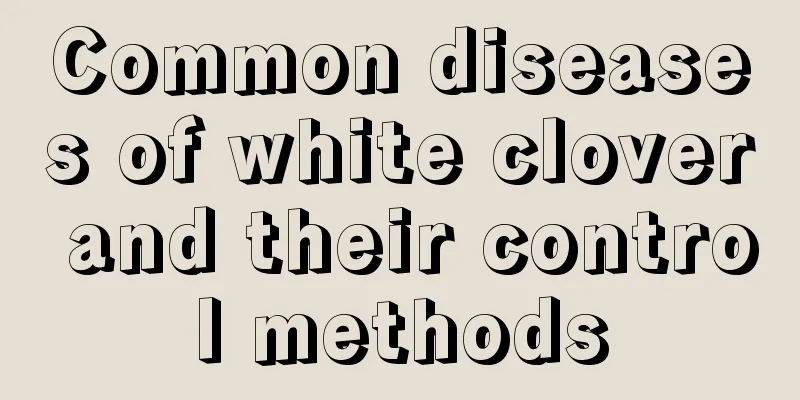Common diseases of white clover and their control methods

Common diseases of white clover: club leaf diseaseSymptomsA type of disease caused by mycoplasma infection is widespread and more serious in some areas. This disease causes the leaves of the plant to become deformed, narrow and long, with uneven notches on the edges, and the plant's growth is weak, affecting its ornamental value. The disease can be transmitted through contact or insect vectors such as leafhoppers, with the peak incidence period being July to August. Prevention and treatment methodsTo prevent and control this disease, the main measures include good potting soil management, disinfection, enhancing plant disease resistance and controlling virus vectors. Common diseases of white clover: dodderSymptomsThe seeds of dodder are very small and can be carried by white clover seeds. After germination and growth, they form dodders and parasitize on the stems and branches of white clover, absorbing its nutrients and water, causing nutrient deficiency in white clover, yellowing of the plants, stunted growth, and even death in severe cases. Prevention and treatment methodsStrengthen quarantine to prevent dodder from spreading through seeds. For chemical control, you can spray 1.5%~2% dinitro-o-cresol and dinitrophenol solution to prevent and control it. Common diseases of white clover: leaf spotSymptomsVarious spots of different shapes, sizes and colors appear on the leaves, causing the leaves to wither and fall off. Prevention and treatment methodsThe occurrence of the disease is controlled by selecting disease-free seeds, removing diseased residues, carrying out good management and maintenance, balanced fertilization, avoiding waterlogging and other measures, and fungicides such as carbendazim, methyl thiophanate (methyl thiophanate), mancozeb, etc. are sprayed for prevention and control according to the condition of the disease. Common diseases of white clover: SclerotiniaSymptomsA major devastating disease that can attack the rhizomes, stem base and lower leaves. The diseased part becomes wet and rotten and turns brown, the diseased plant rots and dies, there is a white flocculent hyphae layer at the diseased part, and black spherical or irregular sclerotia are formed in the later stage. Continuous rain or excessive watering will cause a large number of diseased plants to die and many bald spots will appear on the grass. Prevention and treatment methodsTo prevent and control sclerotinia disease, we should select disease-resistant varieties, eliminate the pathogens, improve management and timely spray pesticides such as diene sclerotinia (Nonclorid), Iprodione (Iprodione), Fucyperamide (Procymidone) and Carbendazim. |
>>: Common diseases and pests of California poppy and their control methods
Recommend
Is it profitable to grow black fungus? How to make a profit?
Is growing black fungus profitable? Black fungus ...
The difference between black wolfberry and black Tiantian
1. Leaf Difference The leaves of black wolfberry ...
The reason why Monstera leaves droop after changing soil
1. Wrong time Reason: Monstera grows very fast, s...
How long does it take for Zephyranthes to bloom after germination?
How long does it take for Zephyranthes to bloom? ...
How often should I water my lisianthus?
How often should I water my lisianthus? The numbe...
Can the green radish be repotted in summer? When can it be repotted?
Can the green radish be repotted in summer? The g...
Learn this trick, one pot becomes two pots, flower lovers are doing it
Division time For deciduous flowers and trees, di...
How to grow mung beans so they germinate the fastest?
You must have tasted bean sprouts, a classic trad...
Do I need to add water to the beer when watering the green radish?
1. Need to add water When watering the green radi...
How to sow Albizia Julibrissin
Preparation before sowing First, you need to choo...
When and how to change the soil of rubber trees
Rubber tree soil change time It is best to change...
How to prune wolfberry
When to prune wolfberry Wolfberry can generally b...
The growing environment and local conditions of Coptis chinensis
Growth environment and conditions of Coptis chine...
Can Begonia be hydroponically cultivated? Hydroponics methods and precautions
Can Begonia be hydroponically cultivated? Begonia...
What is the difference between red diamonds and gold diamonds?
1. Different varieties Red diamonds are one of th...









